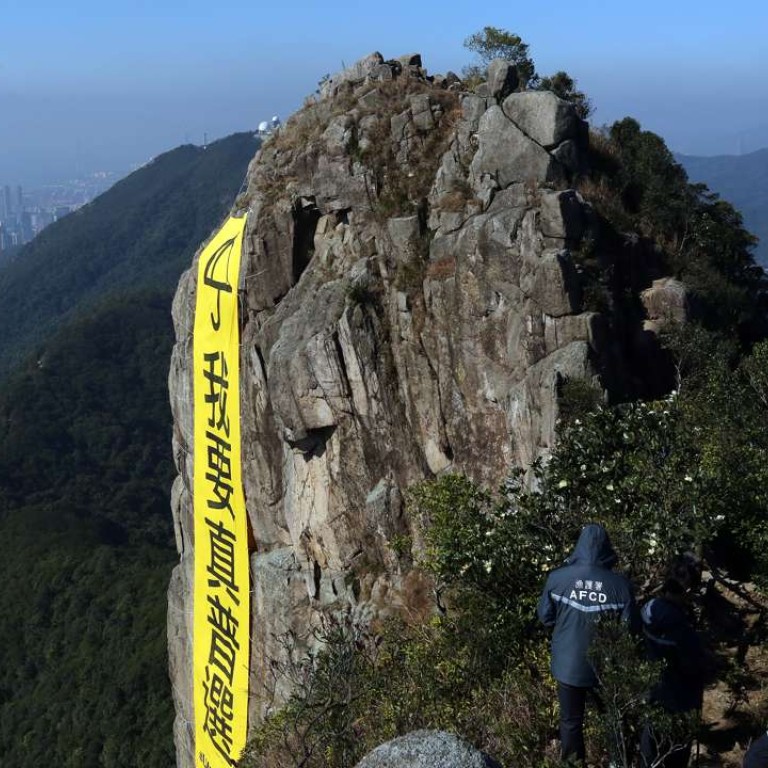
Enough of the Lion Rock refrain – can Hong Kong and mainland China move on to actually setting aside their discord?
Alice Wu says for over a decade, visiting state leaders have reached for references to Hong Kong’s unofficial anthem to establish rapport, yet the calls to ‘set aside discord’ have remained merely calls
I love the 1979 song Below the Lion Rock as much as, if not more than, the next person, but I’ll be damned if I want to hear it recited again. It was heartwarming, back in the day – in the spring of 2002 – when then financial secretary Antony Leung Kam-chung closed his budget with that song. It was very cool when then premier Zhu Rongji (朱鎔基) did it later that year. Using what has become Hong Kong’s unofficial anthem to communicate with the people struck all the right chords.
Zhang Dejiang: ‘One country, two systems’ is here to stay

Hong Kong’s Lion Rock spirit dies for good in a society at war with itself
On Zhang’s last morning in Hong Kong, he talked about us being “all in the same boat”. Make no mistake, the “same boat” metaphor is found in the song’s lyrics, too, right before the bit on setting aside our discord and living, together, happily ever after. And the reason Kowloon East seems to be the preferred destination for touring state leaders – then vice-premier Li Keqiang (李克強) and then president Hu Jintao ( 胡錦濤 ) both made the pilgrimage in 2011 and 2012, respectively – is that it is below the Lion Rock. They were meeting people Below the Lion Rock, just as the lyrics instructed.

State leader’s ‘soft’ take on localism during Hong Kong visit surprises analysts
This is the sort of stuff that would make Deng Xiaoping (鄧小平) proud. Back in 1978, Deng, as vice-premier, held talks with then Japanese prime minister Takeo Fukuda to move Sino-Japanese relations forward precisely by “setting aside disputes and pursuing joint development”.
But let us not forget that this kind of gesture is an overture for the show to come. The problem with replaying Below the Lion Rock over and over again for more than a decade should be obvious. We’ve been stuck playing the same old tune, while our politics has become increasingly tired, and out of tune with the tempo of our time. We’re only nostalgic out of desperation. It’s time to get out from underneath the Lion Rock and move forward.
Alice Wu is a political consultant and a former associate director of the Asia Pacific Media Network at UCLA

